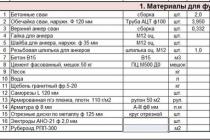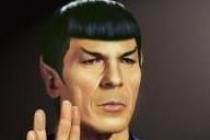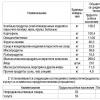Economic relations- a set of relations between people regarding the use of available resources for the effective reproduction of the material conditions of society.
In structure economic relations three main components stand out. Firstly, these are relations of production - relations between people regarding the direct production and appropriation of the benefits they create. Secondly, organizational and economic relations, which are relations that connect and organize the economy into a single whole through management. Thirdly, technical and economic relations, which are understood as relations between people about a more rational and effective use available technical and economic resources.
Analyzing the structure of economic relations, it should be emphasized that the main defining element of it is the relations of production. It is on their content and features that other economic relations depend, and, moreover, the economic system itself largely depends. This role of production relations requires their closer study.
Production relations, in turn, consist of several components, of several types of relations.
Firstly, need relations, which are relations between people about the formation, ways of expressing and implementing them. economic needs. At the same time, economic needs include the need for economic benefits ah, i.e. those benefits that are created by the labor of people in the sphere of the economy. And since it is the needs that are the initial signal for the development of the production of some goods, the ways in which these needs are manifested, the methods of their "recognition" and the methods of implementation are of great importance for the economy, for society.
Secondly, labor relations, which are understood as relations between people regarding the formation of the labor force and the principles of its use in the field of labor activity. The main functions that are performed by labor relations are:
♦ creation and maintenance of favorable conditions for the preparation, development and optimal structuring of a person's ability to work;
♦ ensuring full and rational employment of employees;
♦ provision of conditions for efficient use of labor force;
♦ creation of conditions for an objective assessment of labor results;
♦ ensuring the rational organization and effective management of labor activity;
♦ formation of conditions for objectively fair wages.
Thirdly, relations of appropriation, which are relations between people that exist regarding the ways of including the benefits obtained as a result of production in the life of individual subjects or their groups. main function relations of appropriation serves to ensure that the benefits - the results of the production process - are made one's own and, through their inclusion in the sphere of one's ownership, are used at one's own discretion. The relationship of appropriation is directly related to ownership.
ECONOMIC MODELS
QUESTION #3
Economic interest - it is a manifestation of economic needs. Interests express economic benefits, realizing which the subject ensures independence and self-development.
ECONOMIC INTEREST- system of economic needs of subjects economic activity(employee, corporation, cooperation, consumer, state). Reflecting the unity of all economic needs, interest, in contrast to needs focused on objective goals (the need for bread, shoes, a car, etc.), is aimed at economic relations, at living conditions in general. Therefore, interest acts as a stimulus for the activity of the subject of the economy, determining its economic behavior and actions. Specificity economic interests predetermined, on the one hand, by the objective conditions of production, on the other hand, by the degree of awareness of interest by the subject of the economy. The dialectical interaction of the two sides of economic interest - objective and subjective - leads to the fact that economic interest acts as the engine of economic life.
The specifics of the structure of economic interests in modern world determined by the growing importance of the economic interest of the state, which is the basis national interest. The state directly implements the public economic interest through the mechanism of creation state system guarantees for the population; organizes and finances social and cultural spheres of activity; participates in the social coordination of the interests of workers and entrepreneurs (tripartism system); forms and implements socio-economic programs. The economic interest of the state is also manifested in the functioning public sector economy.
An important component in the structure of economic interests in the modern world is the interaction of the economic interests of the employee and the employer. The objective process of the evolution of industrial relations and the transformation of economic interests leads to the resolution of the conflicts of economic interests "employee - employee" through the mechanism of social partnership. Transformation of economic interests into modern economy leads to the formation of relations of social harmony and, ultimately, to social stability in society.
QUESTION #4
The subject of economics as a science was not immediately determined. It is the result of a long historical development. It can be divided into three stages: economy, political economy, economics.
Saving as a science of home economics, housekeeping arose in ancient society. Such an understanding of it is represented by Xenophon (430-354 BC). Aristotle (384-322 BC) defined economics as the science of wealth, formulated the beginnings of the theory of value, price and money. This view of science did not change in the Middle Ages (V-XVI centuries). Economic problems were still considered from the standpoint of moral justice and the common good as the ultimate criterion for human activity. At the same time, in economy, the normative aspect of the study prevailed over the positive one.
The formation of capitalism (XVII-XVIII centuries) predetermined the emergence of political economy as an independent science. The focus of her attention initially was the sphere of circulation, and not the sphere of production. The first school of political economy is named "Mercantilism". Its representatives are the English economist Thomas Maine (1571-1641), the French economist Jean-Baptiste Colbert (1619-1683), the Russian economist Ivan Tikhonovich Pososhkov (1694-1774). In 1615 Antoine de Montchretien's (1575-1621) Treatise of Political Economy was published, which gave the name to the future science. The word "political" in the name of science means the art of managing the state, public economy. The purpose of the study was to search for sources of wealth, the main forms of which were considered noble metals (gold and silver). The object of observation was capitalist trade, and the subject of attention was the movement of money and goods between individual countries. The mercantilists proposed the introduction of customs duties, which became an instrument of protectionist policy.
The further development of capitalism led to the formation of classical political economy. Its first representatives were William Petit (1623-1687) in England and Pierre Boisguillebert (1646-1714) in France. They expressed the idea of determining the value of a commodity by labor and of the sphere of production as a source of capitalist wealth.
Representatives of French classical political economy - physiocrats(F. Kene, A. Turgot) - they began to look for a source of capital gains outside the sphere of circulation - in agriculture. The head of the school, Francois Quesnay (1694-1774), laid the foundations for the theory of the reproduction of social capital, creating the first macroeconomic model in the form of "economic tables".
The spread of manufactory and the formation machine production meant the creation of a material and technical base adequate to capitalism. Formed classical English political economy. Its representatives saw the source of capitalist wealth already in the sphere of production. Adam Smith (1723-1790) found out the conditions of production and accumulation of wealth, showed the importance of the division of labor for the development of productive forces. David Riccardo (1772-1823) drew Special attention on distribution, showed the economic opposition of the classes of bourgeois society. S. De Sismondi (1773-1842) studied the growth of capitalist wealth, correlated with the dynamics of the population, with the size of its consumption.
The economic crises of overproduction and the intensification of the class struggle gave rise to the question of the internal contradictions of capitalism. A transition has taken shape in science from the political economy of wealth to the political economy of labor.
Karl Marx (1818-1883) and Friedrich Engels (1820-1895) - creators of proletarian political economy and authors of the doctrine of the dual nature of labor and the theory of surplus value. They examined the system of categories and laws of the capitalist mode of production from the standpoint of the working class. Political economy began to be regarded as a science that studies the production relations of successive social formations.
From the 2nd half of XIX in. capitalism established itself in developed countries. As a result of this development general principles political economy gave way to studies of various problems economic practice. For changing qualitative analysis(answering the question “what is it?”) comes a quantitative analysis (how much? and why?). The very name of science is changing. "Political economy" is supplanted by the concept "Economics". Economics is understood as the analytical science of the use by people of limited resources for the production of various goods, their distribution and exchange among the subjects of society for the purpose of consumption. The author of the new name was the founder of the neoclassical trend Alfred Marshall (1842-1924). The subject of his analysis was the theory of price. The pricing mechanism was considered (as well as by A. Smith) as the ratio of supply and demand. But at the basis of his theory of demand was used the concept of marginalism (the doctrine of marginal utility), and at the basis of the theory of supply - the concept of factors of production, later supplemented by the theory of marginal productivity.
After economic crises 20-30s 20th century it became impossible not to notice the influence of monopolies on pricing. In 1933, the relevant studies of E. Chamberlain and J. Robinson were published. But the most significant was the theory of J. M. Keynes (1883-1946), which became the basis of a new direction economic thought. Into the spotlight Keynesianism problems of macroanalysis were posed. The normative aspect of the study is made dependent on the positive. The necessity of an active regulatory role of the state in a mixed economy is substantiated.
However, the 70s. 20th century became a period of disappointment in Keynesianism. The proposed recipes proved to be ineffective in order to stop the simultaneous increase in inflation, the decline in production and the increase in unemployment. New directions of neoclassicism (monetarism, new classical economics, neoinstitutionalism) with their ideas noticeably pushed Keynesianism.
Thus, in the history of economic thought, the understanding and definition of the subject of economic theory, as a special area of scientific knowledge, has undergone a long evolution: from the body of knowledge about housekeeping, wealth, money, the economic policy of the state to the science of the laws governing production, exchange, distribution, industrial relations.
The main task of economics as a science- understand explain how the economy-economy works and how it should work in order to provide people with a decent standard of living.
Economy functions:
1. cognitive function. Description and explanation of economic processes and behavior of business entities
2. Methodological function. In the process of understanding the economic life of society, economists develop methods effective organization production of goods and services.
3. Critical function. The essence of this function is to identify the achievements and shortcomings of housekeeping: domestic, industrial, national and global.
4. pragmatic function. Economic theory is the basis for making effective decisions on the production, exchange and consumption of goods and services.
5. predictive function. The results of the study of economic activities of people allow economists to make predictions economic development society.
6. educational function. Economic theory provides knowledge, shapes the economic thinking and culture of many people who want to learn how to creatively solve their life problems.
7. Ideological function. The essence of this function is to create a worldview system that provides people with moral confidence in their future.
QUESTION #5
Methodology of Economics
Each science cognizes its subject of research through the appropriate methods, means and methods used in the research process. Economic theory uses a wide range of methods of scientific knowledge. These include:
Method of scientific abstraction;
Method of analysis and synthesis;
Method of induction and deduction;
Method of positive and normative analysis;
Method of functional analysis;
Method of economic and mathematical modeling, etc.
The method of scientific abstraction (method of abstraction) - allows in the course of scientific knowledge to identify the main, essential elements and aspects of economic reality and to abstract from secondary and insignificant properties. The result of the abstraction operation is scientific abstractions - concepts, categories, laws of science, i.e. concepts used in economics to analyze economic issues, their characteristics, to identify patterns of development of society.
Scientific abstraction is called generalized concepts (money, goods, labor, etc.) developed by people by thinking abstracted from the directly concrete study of the phenomenon, and the starting point of scientific knowledge is objective reality. And this reality is economic life. human society. If this is an objective reality, then it does not depend on the will and consciousness of a person at the same time that this reality is made up of conscious actions and activities of individuals.
Analysis and synthesis are the most important tools for penetrating the essence of economic reality. When analyzing the object of study, they try to divide it into its constituent parts and study it separately. During synthesis, information characterizing individual objects of research is combined into a single whole.
In the process of analysis, thinking goes from the visible concrete to abstract thinking, dividing the elements under study into its simplest parts and sides. In the process of synthesis, cognizable phenomena are studied in the mutual connection of its constituent parts in motion and contradiction, as a result of which ways and forms of resolving contradictions are opened, and, consequently, the development of phenomena. There are 2 more elements - qualitative and quantitative analysis. This is due to the fact that any economic phenomenon is characterized by qualitative and quantitative certainty.
Scientific induction presupposes an experimental study of phenomena, in the course of which the transition of individual facts to general conclusions is made. Deduction - obtaining private conclusions based on general provisions. Induction and deduction are inextricably linked.
A positive approach states the real state of affairs, regardless of how people evaluate it.
The normative approach evaluates any phenomenon. The method of functional analysis allows you to establish the relationship between various economic processes.
In the process of production and economic life, various economic relations develop between people, the main of which are:
Property relations;
Production (including organizational and economic, related to the organization of production);
Commodity-money and market relations. The formation of economic relations directly depends on the property relations that develop in society.
Property Relations- this is the relationship between people on the production, distribution and use of factors of production and on the appropriation of economic benefits.
Depending on the dominance of any form of ownership, one or another type is formed. economic system(private property - a market economy, common property - a command-administrative economic system).
The most effective in economic activity is private property, which gives rise to people's personal interest in labor and the overall success of the business.
The dominant type of property determines the quantitative and qualitative indicators of economic benefits (common property - Planned Economy- shortage of goods and services; private property - market economy - overproduction of goods and services).
Relations of production- it is objectively developing relations between people in the process of production, distribution, exchange and consumption of life's goods. The modern manufacturing process is continuous, complex and interconnected. economic process, called social production, or reproduction.
The interconnections and interaction of people in the economy have their own organizational forms. These include:
division of labor- this is a situation in which workers perform one or more functions in an extensive production process;
production specialization- organization of production, specializing in the production of certain types of products;
cooperation - production links between enterprises specializing in the production of individual parts of a single whole;
integration in the economy- association in common system various economic units (firms, industries and even entire economies of a number of countries).
The modern set of organizational and economic forms is quite wide and is used by firms depending on the current situation on the market for a given product or condition. national economy. Quantitative and qualitative indicators of economic benefits also directly depend on the production technologies used. Technology is a set of scientific and technical knowledge used in production. The level of development of engineering and technology indicates the level of development of society and the economy.
For the development of production relations, forms of management are also of no small importance. Exist two type management:
natural economy;
commodity production.
Natural economy- this is a farm, the products of which are intended to satisfy the producer's own needs. There is no sale and purchase of products. There are no economic ties between producers. The economy is not developing.
Commodity production- this is such an economy, the products of which are produced not only for the producer's own consumption, but also for exchange for other goods through purchase and sale. Economic ties carried out through the market
Product is a thing or service created by labor, having utility and value and serving for exchange for other goods (sale on the market).
The development of commodity exchange relations contributed to the development market relations as the most efficient economic relationship.
Farm forms
Ø Natural
Man is a social being, carrying out his life activity, he inevitably enters into relations with other people - economic or industrial relations. They are distinguished up to 17 levels, consider three: technological, organizational and economic, socio-economic.
Technological- express the nature of the production of goods, are determined by the level of development of science and technology. The same good can be produced in different ways, for example, writing. Studied by various technological sciences.
Organizational and economic- express the nature of the placement of workers in manufacturing process, are determined by technological relations, just as they do not have their own social form, that is, the same in all camps, among all peoples. Studied by the science of management.
Socio-economic relations- are formed between people about the production, distribution, exchange and consumption of goods and services. It is these relations that give a specific social form to the functioning of all other relations; it is they that are studied by economic theory.
The most important place among socio-economic relations occupy property relations. Own- this is the relationship between people about the appropriation of the conditions of production (land, capital, labor) and its results. The main ones are relations of assignment of conditions of production. If the conditions of production belong to the whole of society or to collectives of workers, then this is public property. If the conditions of production are the property of members of certain classes only, then this is private property. In this case relations of exploitation are inevitably created: the class that owns the conditions of production uses them to exploit workers deprived of the conditions of production.
Consequently, if we want to determine the nature of production relations, then it is necessary first of all to establish who owns the conditions of production, what are the relations between people regarding the means of production. Because they define character. production relations, that is, the way the worker is connected to the means of production ( direct, mixed or economic coercion). On the basis of which the following types of property are distinguished: primitive communal, slaveholding, feudal, capitalist, public. Which, in turn, determines the nature distribution relations- to whom, what share in the created product will get. And this, in turn, determines the nature exchange relations- who, how much of what can buy, and hence the character consumption relations- who will live.
The totality of historically defined production relations (socio-economic) that make up economic structure society, forms economic basis of society.
The totality of ideological attitudes and views (politics, law, morality, religion, philosophy, art), and the organizations and institutions corresponding to them (state, parties, church, etc.) form socio-political superstructure of society.
The superstructure determined by the base at the same time exerts an active influence on it and society as a whole, accelerating or slowing down the development of basic relations.
4 .Dialectics of productive forces and production relations. Law of conformity.
Productive forces and relations of production, being two sides social production, are inextricably linked with each other and affect each other, that is, they are in dialectical unity.
The totality of historically determined productive forces and production relations form mode of production.
The mode of production with its corresponding superstructure (state, law, etc.) form socio-economic structure.
K. Marx singled out five modes of production and, accordingly, formations: primitive communal, slave-owning, feudal, capitalist and communist.
The transition from one socio-economic formation to another is carried out on the basis of the law of the correspondence of production relations to the nature and level of development of the productive forces. This law is based on the contradiction between the productive forces and production relations. The essence of this contradiction is that the productive forces develop faster under the influence of scientific and technological progress. In an effort to facilitate his work and his existence, a person constantly comes up with something (that is, laziness drives social progress). The development of the productive forces is expressed, first, in the development of the instruments of production (from sticks to modern machine tools); secondly, in the improvement of the objects of labor (from given by nature itself to artificial ones); thirdly, in the improvement of the labor force (production skills of people develop, their cultural level rises, production experience accumulates).
Production develops unhindered only as long as the relations of production of a given formation correspond to its productive forces.
But such a correspondence does not always exist. The relations of production tend to lag behind the continuously developing forces of production. This leads, in the final analysis, to the fact that the correspondence of production relations to the productive forces is violated, and then the old production relations begin to hinder their development. The accumulation of inconsistency is fraught with the danger of conflict. Sooner or later, it spills over into the social and political spheres, takes the form of a struggle between social forces and classes, which leads to a socio-political revolution and the establishment of a new system of production relations.With the emergence of new production relations, a correspondence is established for some time between the productive forces and production relations (society is moving to a new socio-economic formation). During this period, the new production relations serve as an engine for the development of productive forces and play a decisive role in the movement of society forward. Then they start falling behind again, and everything repeats from the beginning. Such is the objective economic law of the correspondence of production relations to the nature and level of development of the productive forces. Its action necessitates a change in production methods.
At the same time, within the framework of one mode of production, significant changes in production relations are possible, their adaptation to changing productive forces. The establishment of new, more progressive production relations is associated with a change in the forms of ownership. But this alone is not enough. New property relations should reveal all the richness of their content and be supplemented, “acquired” by adequate organizational and economic relations, forms and methods of management.
Thus, capitalism proved its advantages over the feudal system only after it created the factory organization of production, mastered new methods of producing surplus value, formed a single national, and then the world market, put into action powerful levers of competition, a credit system, and flexible forms of wages. , that is, the corresponding economic mechanism.
5 .The role of the superstructure in economic development.
The driving forces of economic progress are generated not only by basic factors - production relations. An active role in the rise (or decline) of the economy is also played by the superstructure, which, as already mentioned, includes political, legal, spiritual, moral and other relations and the institutions corresponding to them: political parties, the state, etc.
Being a derivative, secondary to the economic basis, the superstructure has an active feedback effect on its development. Moreover, elements of the superstructure can either directly influence economic progress (such, for example, the role of the state and law), or have an indirect effect on it (spiritual life, morality), refracting through other superstructural relations and institutions.
Economy and politics. The most profound and growing influence on economic progress is exerted by politics. It is, as they say, the concentrated expression of the economy. First of all, through politics, certain classes express their main, leading interests, defend them and achieve their realization. An individual or a team can achieve their own goals (in a favorable situation) on their own. The ruling class realizes its interests only with the help of politics, as a rule, through the activities of the state.
Politics is actively invading public life and can serve either as a powerful lever of economic progress, or, on the contrary, as a brake on it. By pursuing the concrete interests of classes (or society as a whole), their long-term goals, state policy plays a decisive role in relation to the motives that directly guide individuals, individual collectives or social groups in economic life.
In this sense politics take precedence over economics.Through policy modern state as if "wedged" into the interaction of productive forces and production relations. It can contribute to the emergence and establishment of new production relations and, conversely, artificially restrain and conserve old forms that have come into serious conflict with the real needs of the development of the productive forces.
In principle, politics, like the economic basis that generates it, can influence economic progress in three different ways. It can accelerate it in those cases when it expresses the objective logic of social development quite accurately. It can slow down the pace of social progress when attempts are made to act contrary to objective laws. Finally, politics can affect economic progress in a very contradictory way, accelerating its movement in one direction and restraining it in another.
Politics also has a certain independence, autonomy within the general framework of the interests of this or that class. In economic policy bourgeois states there may be, for example, different directions; one of them in this moment turn out to be more effective, the implementation of others does not bring the expected results.
Developing the foundations for the most effective economic policy, their adjustment in accordance with the changing situation is the most important task of the ruling parties of any country.
A serious regulatory impact on the development of social production and the rate of economic progress is exerted by right. It contributes to economic life orderliness and organization. As K. Marx pointed out, “regularity and order are themselves a necessary moment of any mode of production, as soon as it must acquire social stability and independence from a simple case or arbitrariness” / Marx K., Engels F. op. v. 25, part II, p. 356/.
Law, like any other element of the superstructure, can keep up with the changes that are urgent in the economy or lag behind them. Accordingly, it accelerates or slows down economic progress.
Spiritual Factors of Economic Progress. State of public consciousness, culture of work and communication, prevailing moral attitudes and values, traditions- are the product of a long historical evolution, they all reflect (but only through multiple mediation) changes in the economic basis of society. At the same time, these superstructural factors themselves actively influence the basis, modify it, seriously influencing the development of social production.
For Ukraine, as well as for other countries, it is important to understand that society cannot be limited to implementing measures only in the field of scientific, technical, structural and investment policy. There is no reason to rely on the omnipotence of new methods of management. It is important, simultaneously and in combination with economic measures, to carry out a consistent democratization of political life, to form and develop adequate moral values and ideals, and to raise the spiritual culture of the masses. At the same time, it is necessary to decisively eradicate the (post-socialist) habits and prejudices inherited from the past, social apathy and petty-bourgeois, philistine psychology. Solving all these tasks means, in practice, using the powerful spiritual and moral factors of economic progress.
Political economy is called upon to study relations of production not as an isolated autonomous system.
It must analyze and take into account their real interaction with the productive forces, on the one hand, and with the entire multifaceted superstructure, on the other. Only in this way can it overcome the separation from life, give a complete and comprehensive picture of economic progress, and contribute to its acceleration.The role of the superstructure as the driving force of economic progress at various stages of the development of society does not remain unchanged. The modern period of historical development differs significantly the growing influence of the superstructure on the economy.
This is explained, first of all, by some general economic features of modern production. The multiple complication of economic tasks and the increased level of socialization of production, the qualitatively new role of scientific and technical factors and informatization in ensuring economic growth, the change in the position of the worker in production - all this together leads to the fact that political and spiritual factors become important in regulating social production .
Along with general economic reasons, the growth of the role of the superstructure is also influenced by the specifics of development. modern society, especially at the stage of its qualitative renovation and restructuring. The growing awareness of civic duty and responsibility for the fate of society, the strengthening of moral principles and the purification of moral values are becoming an important component of the high efficiency of labor and all economic activity.
In the rational organization and effective conduct of complex, large-scale modern production, the role of political institutions, legal norms, and management organization as a whole is dramatically increasing. At the same time, the need for scientific substantiation and balance of each step is growing, the price that society is forced to pay for ill-considered and hasty decisions, for ignoring objective laws, is increasing. This reveals an important feature of social progress, according to which the strengthening of the role of any social institution is inevitably accompanied by an increase in its responsibility.
In general, the influence of political, legal and spiritual and moral factors on economic progress is manifested in the fact that with their help, the opportunities and driving forces established in the economy are more fully revealed. existing system management.
6 .Economic laws, their classification, action and use.
Outwardly, it seems that human life is a set of random phenomena. However, in reality, it is subject to many laws - physical, chemical, genetic, economic, etc.
Law- these are internal, stable, recurring relationships between phenomena and processes.
Economic laws, like the laws of nature, are objective in nature, that is, their activity does not depend on the will and desire of man. Unlike the laws of nature, they operate only in human society. Allocate universal, general and specific laws .
universal laws- operate throughout the existence of human society. These are the laws of social progress. There are three of them:
1. The law of increasing needs - determines the economic progress of society;
2. The law of conformity - determines the historical progress of society;
3. The law of saving time or increasing labor productivity - plays the role of natural selection.
General laws - only work in some formations. For example, the laws of commodity production (cost, demand, supply, competition, etc.).
Specific Laws- operate only in one formation. For example, the basic law of the mode of production, expressing the purpose of its development and the means to achieve it.
In every country, at every moment of time, all three groups of laws are in force. In their combined action, they form a system in which the fundamental law of the mode of production occupies a central place. It is he who gives a specific form to the action of other laws. The system does not remain unchanged, the action of some laws ends and they are reproduced in fading forms, the action of others is just beginning.
Laws are abstractions invented by people, in real life they do not exist, but there are only phenomena, that is, forms of manifestation. Moreover, each law has many forms of manifestation. Man cannot abolish, change or improve the law, but he can use it, choosing those forms that suit his purposes. If the form is chosen correctly, a positive result is obtained, if not, a negative one.
Economic relations and their structure.
Objective economic laws are the core of economic relations.
Economic relations - relations between people arising in the process of production, distribution, exchange and consumption of material and spiritual goods and services.
There are three groups of carriers of economic relations in market economy: a) producers and consumers; b) sellers and buyers; c) owners and users of goods. In general, economic relations between people characterize their property position in society.
Property and socio-economic ties are relations between social classes, social groups, individual collectives and members of society. The decisive position in these economic relations belongs to the one who appropriates the factors of production and its main results.
Organizational-economic relations arise because social production, distribution, exchange and consumption are impossible without a certain organization. The latter is required for any joint activity of workers. People think over their economic actions in advance, a plan of future work is ripening in their heads, uniting all the workers. At the same time, organizational problems are solved: how to separate people to perform individual work and unite all employees under a single command, how to manage the economy and who will manage production.
In this regard, organizational and economic relations are divided into three major types:
labor cooperation (joint production of products, enlargement of the size of enterprises, their constant cooperation and association) and division of labor activity (its fragmentation between economic units)
organization of economic activity (subsistence and commodity-market economy)
economic management (spontaneous-market and state-planned regulation)
All types and types of economic relations can be schematically represented in the figure.
12. Economic content of property
Property is viewed in economic theory as economic category. This means that the problem of property arises where there is an economic activity that a person does not carry out alone, but in interaction with other people. Therefore, property is not a thing as such, and not a relationship of a person to a thing, but a social relationship that people enter into with each other regarding the appropriation of these things.
Appropriation is an economic bond between people that establishes their relationship to things as their own or someone else's. Appropriation is expressed in the ownership of goods individuals, collectives or the state. According to the Civil Code of the Russian Federation, there are three types of appropriation: private, general shared and general joint.
To disclose the content of ownership, it is necessary to determine the elements of ownership, its structure.
These elements are:
1. Subjects of property - participants in property relations.
According to the Civil Code of the Russian Federation, the subjects, that is, the bearers of the rights and obligations of property, are:
1. citizen (individual)
2. A legal entity is an organization, such as a firm, which is subject to civil rights and obligations. Entity in the course of its activity carries out economic relations on its own behalf.
3. state and municipalities (local government and self-government bodies)
Subjects of property can enter into property relations as individuals, and then we speak of individual property, as a group - and then there is group property, on the scale of society - then there is public property.
2. Objects of ownership are those objects about which property relations arise. This is real and movable property, as well as intellectual property; in a slave-owning society, the object of property was a person.
Real estate is industrial premises, transport facilities, various infrastructure facilities, land.
Movable property is something that can be moved around in space: equipment, tools, cars, securities etc.
Intellectual property acts in the form of works of literature, art, electronic equipment software, film industry products and other products of human intellect. These types of property are entitled to patents, copyrights, trademarks and other registration documents. Protecting intellectual property is vital to spurring creativity. The role of intellectual property in the modern information world is increasing dramatically.
3. Method and form of appropriation of an object (how certain objects become the property).
According to the method of appropriation, property can be:
Private
Public
By the nature of the assignment:
Labor
unearned
primitive, slaveholding, feudal, capitalist.
Until recently, the communist type of property was also distinguished. However, both in the USSR and in other countries that built socialism (as the first phase of communist society), the attempt to build a socialist society was unsuccessful. The communist type of ownership was not implemented. Today, in the vast majority of these countries, the previously existing economy is being transformed into a market economy.
According to the form of ownership within a particular economic system, it can be:
Individual
group














